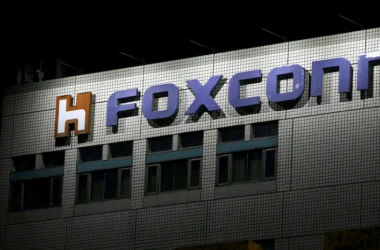
In a groundbreaking move towards sustainable transportation, India’s Minister of Petroleum and Natural Gas, Hardeep Singh Puri, inaugurated the nation’s maiden Green Hydrogen fuel cell bus in Delhi. During the event, Minister Puri also revealed plans to introduce an additional fleet of 15 such buses in the National Capital Region (NCR) in the near future. This momentous occasion underlines India’s commitment to harnessing the potential of hydrogen as a future fuel source, with global demand projected to surge by four to sevenfold by the year 2050.
Delhi, [Date] – India’s Minister of Petroleum and Natural Gas, Hardeep Singh Puri, marked a historic milestone in the country’s pursuit of sustainable and eco-friendly transportation by unveiling the very first Green Hydrogen fuel cell bus in Delhi. The event showcased India’s dedication to embracing innovative technologies to address environmental challenges while offering a glimpse into the future of public transportation.
During the inauguration, Minister Puri emphasized the pivotal role that hydrogen is poised to play as a fuel source of the future. He also shared the government’s ambitious plans to expand the deployment of these eco-conscious buses by adding an additional 15 buses to the fleet, which will serve commuters in the National Capital Region (NCR).
Minister Puri highlighted the significance of hydrogen in India’s efforts to achieve decarbonization targets and reduce its carbon footprint. He noted that hydrogen is increasingly being recognized as a key component of India’s strategy to transition towards sustainable energy solutions.
“Hydrogen is deemed as the fuel for the future with immense potential in helping India meet its decarbonization targets,” Minister Puri declared during the bus’s launch event. He went on to highlight a significant global trend, stating, “Global demand for hydrogen is expected to increase by four to seven times, reaching a staggering 500-800 million tonnes by the year 2050.”
India, in line with this global surge in demand, is also expected to experience a remarkable uptick in domestic hydrogen consumption. Minister Puri stated, “The domestic demand for hydrogen is projected to increase fourfold, from the current 6 million tonnes to a substantial 25-28 million tonnes by 2050.” This projection underscores the nation’s commitment to incorporating hydrogen as a key element of its energy transition strategy.
In addition to outlining the remarkable growth in hydrogen demand, Minister Puri provided insights into the government’s plans for domestic hydrogen production. He revealed that public sector undertakings (PSUs) operating under the purview of the Ministry of Petroleum and Natural Gas are poised to contribute significantly to India’s green hydrogen production.
“PSUs under the ministry have set ambitious targets to produce approximately 1 million metric tonnes per annum (MMTPA) of green hydrogen by the year 2030,” Minister Puri announced. This ambitious goal not only demonstrates India’s commitment to fostering a sustainable energy ecosystem but also positions the country as a potential leader in green hydrogen production on the global stage.
The launch of India’s first Green Hydrogen fuel cell bus represents a remarkable stride towards achieving cleaner and more environmentally responsible transportation solutions. It reflects the government’s unwavering commitment to exploring innovative technologies and reducing the carbon footprint of public transportation systems. As India continues to embrace sustainable energy sources, hydrogen-powered vehicles are poised to become a pivotal component of the country’s efforts to create a greener and more sustainable future.
The introduction of additional Green Hydrogen fuel cell buses in the NCR is expected to contribute significantly to improving air quality, reducing emissions, and enhancing the overall quality of life for residents in the region. Moreover, it underscores India’s dedication to aligning its transportation sector with global sustainability goals and positioning itself as a key player in the emerging hydrogen economy.
In conclusion, India’s launch of its first hydrogen fuel cell-powered bus signifies a transformative moment in the country’s journey toward sustainable mobility. With ambitious plans for expansion and a commitment to green hydrogen production, India is poised to lead the way in adopting clean energy solutions and reducing its environmental impact. The unveiling of this innovative bus marks the beginning of a promising era for eco-conscious transportation in the nation.










